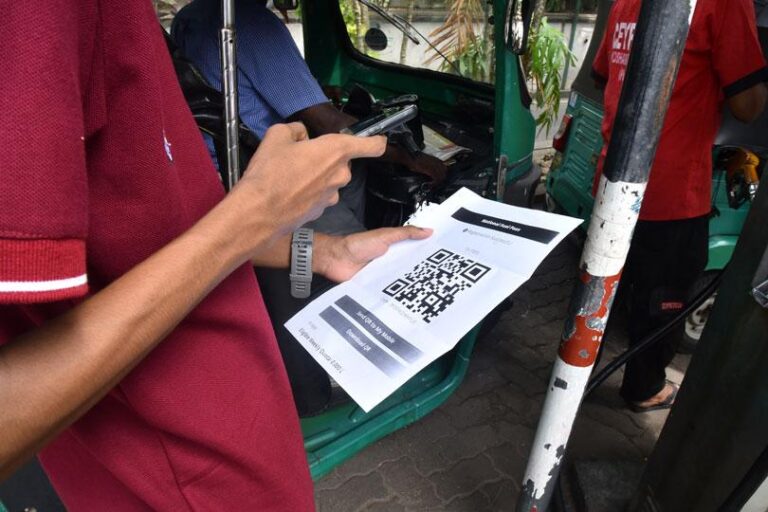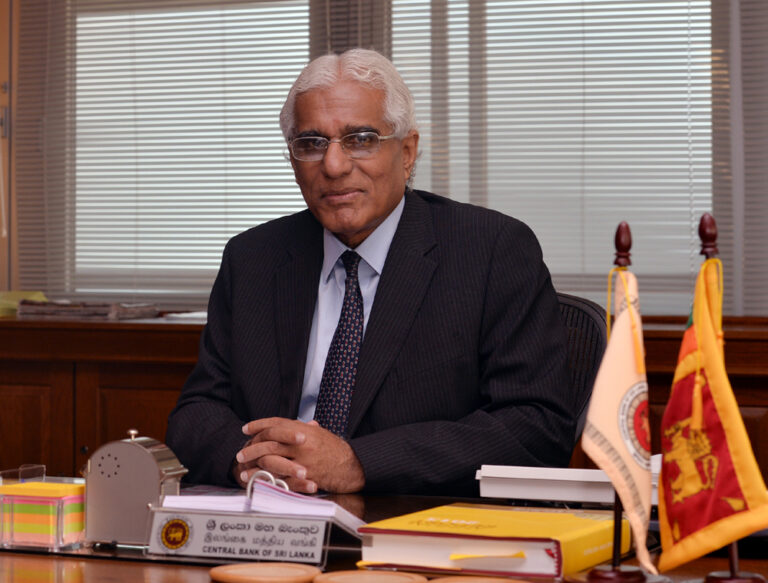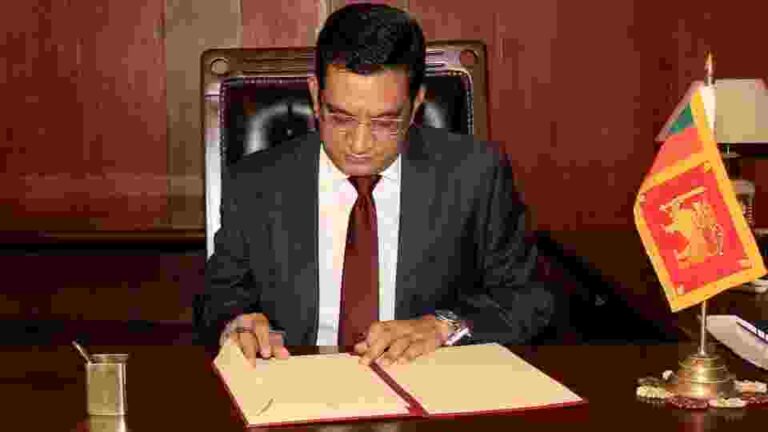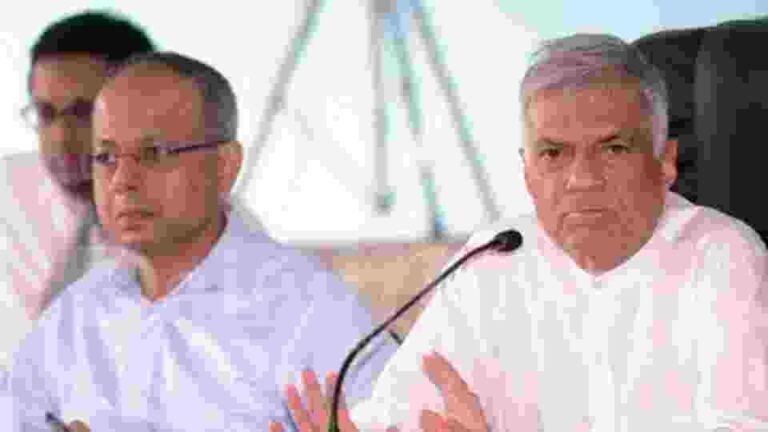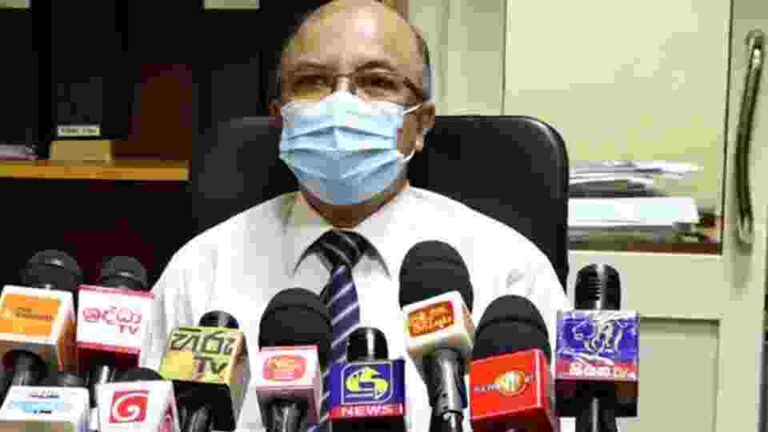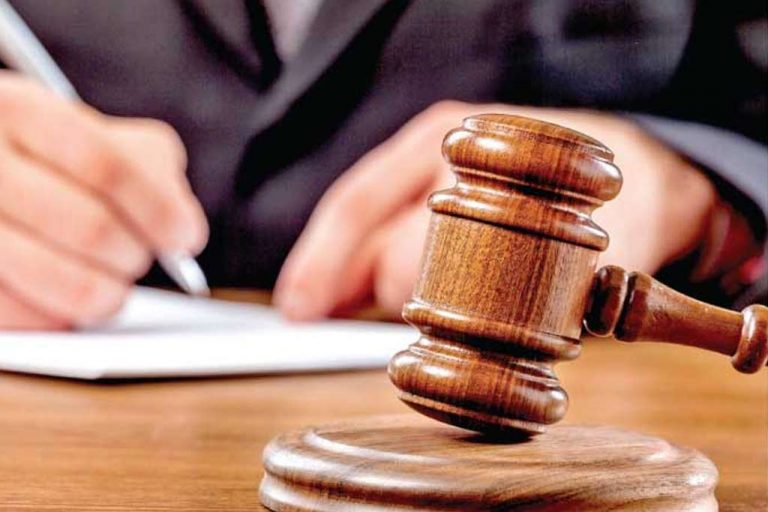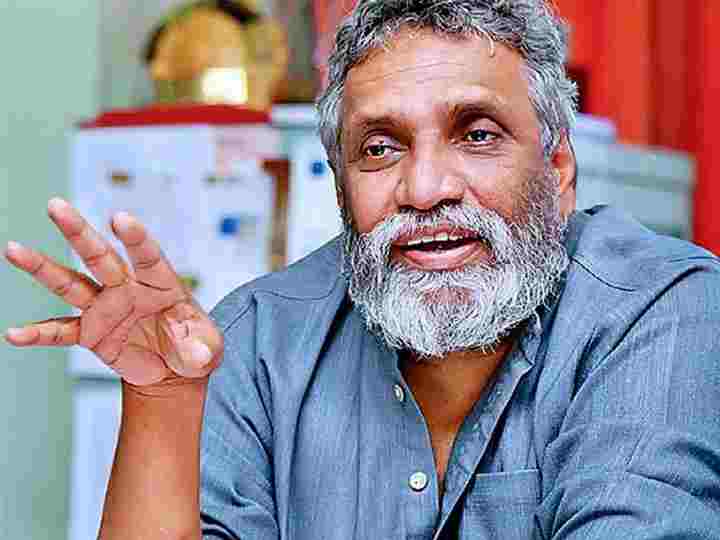The Energy Ministry has decided to dispense limited volumes of fuel in the next 12 months from Ceypetco filling stations to vehicles but it will be starting QR code system with effect from August 1st.
Earlier it was planned tgo introduce this system from Monday 26 , a senior official of the ministry said adding that it has to be delayed till next month due to technical and practical issues in the implementation of QR code
Minister of Power and Energy Kanchan Wijesekera said that the ‘QR Code’ system was introduced since the country’s daily fuel demand cannot be fulfilled.
Due to foreign exchange issues, fuel imports have to be restricted in the next 12 months, he said in a tweet.
He also said that the Ceylon Petroleum Corporation (CPC) has never distributed fuel daily to every single fuel station and that is “practically not possible even when stocks are unlimited.”
The QR code system under the National Fuel Pass portal will be implemented islandwide from August 1 in multiple filling station locations of CEYPETCO and Lanka Indian Oil Company (LIOC) while placing the system to refuel for vehicles according to the last digit of the vehicle’s registration number until August 1, the Power and Energy Ministry said.
He said the stations not equipped or having technical difficulties will follow the last digit and fuel quota allocation until the technical issues are rectified.
“Sixty percent of the locations have already been outfitted and tested. They will be given priority in fuel distribution, he said.
Therefore, the Minister requested all CEYPETCO and Lanka IOC fuel station owners to adopt the system immediately, and distribution will be strictly enforced to fuel stations with the QR facilities by August 1.
We request the public to register with the National Fuel Pass portal and support the initiative, he said.
He said options will be given to users to register multiple vehicles with their business registration by the end of the week and to government institutes to register. Divisional Secretaries will be given access to the platform to register generators, gardening equipment, and other equipment, he said.
The Police Department and Divisional Secretaries will be given access to register three-wheelers while allocating each three-wheeler to one specific fuel station.
The Transport Ministry will be given access to register buses, allocating them to depots or fuel stations accordingly.
Other services such as health, agriculture, fisheries, tourism, industries, and service-providing sectors will be given access to the system to register their requirements and allocation of vehicles at fuel stations.
However, the QR system quota will be in place from August 1, and the last digit of the number plate system and other allocations will be invalid.
The National Youth Corp, National Youth Council members and volunteers will assist the programme at fuel stations for the next 10 days, the Minister added.
SL QR code for fuel pumping postpones till Aug 1 due to technical issues
Dr. Indrajit Coomaraswamy says SL economic recovery requires painful treatment
Highly respected eminent economist and former Central Bank Governor Dr. Indrajit Coomaraswamy has said the economic recovery will require painful treatment whilst expressing hopes that President Ranil Wickremesinghe would take all the tough decisions to avoid the disastrous situation.
“President Wickremesinghe is economically very literate. He knows what has to be done. At times, it has been difficult for him or any other politician to get it done, given the political dynamics and that toxic populist politics and entitlement culture that has driven the economy to where it is today.
But, if President Wickremesinghe understands this reality , he can get it done and tackle the economic crisis ,” Dr. Coomaraswamy said in an interview with The Wire on Saturday.
He said the President seems that he was ready to bite the bullet, noting that if he does not, Sri Lanka will go down the abyss and it will be a disaster.
“First, we need to get an IMF agreement because, at the moment, we neither have foreign exchange nor rupees. The Government does not have fiscal revenue and thus it puts enormous pressure on the Central Bank to print money.
“This has to be resolved immediately and the only way is via an IMF program, which gives us a certificate of good housekeeping and will also leverage other funding from the international donor agencies like the World Bank and Asian Development Bank and hopefully from others.
It will also allow flows of private investment into the economy. We also need to restructure our external debt by talking to creditors, he pointed out.
“Secondly, President Wickremesinghe has to find a way of getting essential supplies urgently, such as fuel, food, medicine, and so on, till the debt restructuring and the IMF program are finalised.
However, to get the IMF finalised to a disbursement level, will take around five to six months and during this period, the President has to get bridge finance to meet the essential imports, he said.
“Thirdly, the President needs to have a very clear plan on the structural reforms that he is going to undertake to accelerate growth in the economy,” Dr. Coomaraswamy outlined the three key factors the Government should focus on in the immediate future.
He suggested that the Government needs to and is beginning to do is, to strengthen the safety net by enhancing the cash transfers going to the poor and vulnerable.
“I think communication is going to be critical. Almost all Sri Lankans now recognize that sacrifice is necessary and inevitable. With that, the message needs to be reinforced and driven through. Simultaneously, we have to find a way of distributing the sacrifice and pain according to the capacity of the population to bear that pain,” he added.
He also revealed that around 750,000 have slipped into poverty and the data seems to suggest that by the end of the year, half the population could fall below the poverty line which had been elevated because of inflation.
In terms of employment, he said that he had not seen any numbers as to how many jobs have been destroyed, but confirmed that all parties certainly have intense hardships.
Considering all data available, he said Sri Lanka will see an economic downturn of around 8%-10% by the end of next year compared to 2019. “This, I believe it will take another three years or so to make up for that economic downturn of 8-10% and in terms of getting the level of the GDP back to where it was in 2019, I would say about five years,” he added.
Foreign Minister Sabry assumes duties
Minister of Foreign Affairs Ali Sabry assumed duties at the Ministry today (25 July, 2022) at a simple ceremony. Foreign Secretary Aruni Wijewardane and the senior officials were present.
Addressing the officials, Minister Ali Sabry stated that he looked forward to delivering on the mandate of the Ministry to steer forward Sri Lanka’s foreign relations, taking the domestic compulsions too into consideration. He commended the outgoing Minister Prof G L Peiris for his leadership provided to the Ministry of Foreign Affairs.
Minister Sabry was appointed a Member of Parliament in 2020. Minister Ali Sabry served as the Minister of Justice since 12 August 2020, until he was appointed the Finance Minister on 4 April, 2022.
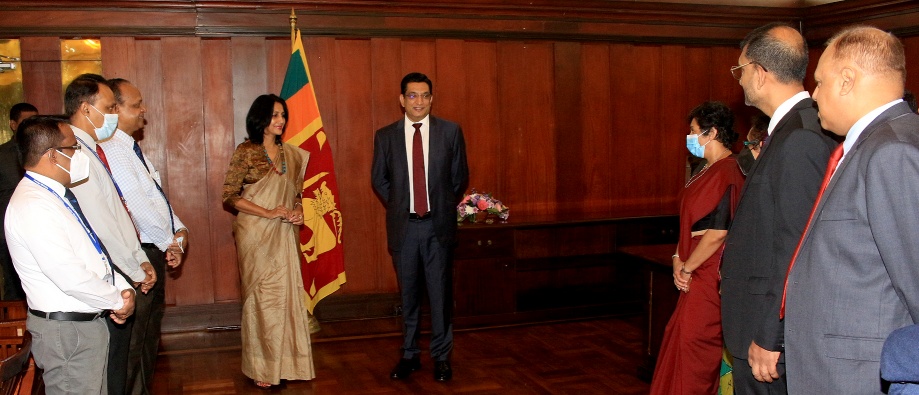
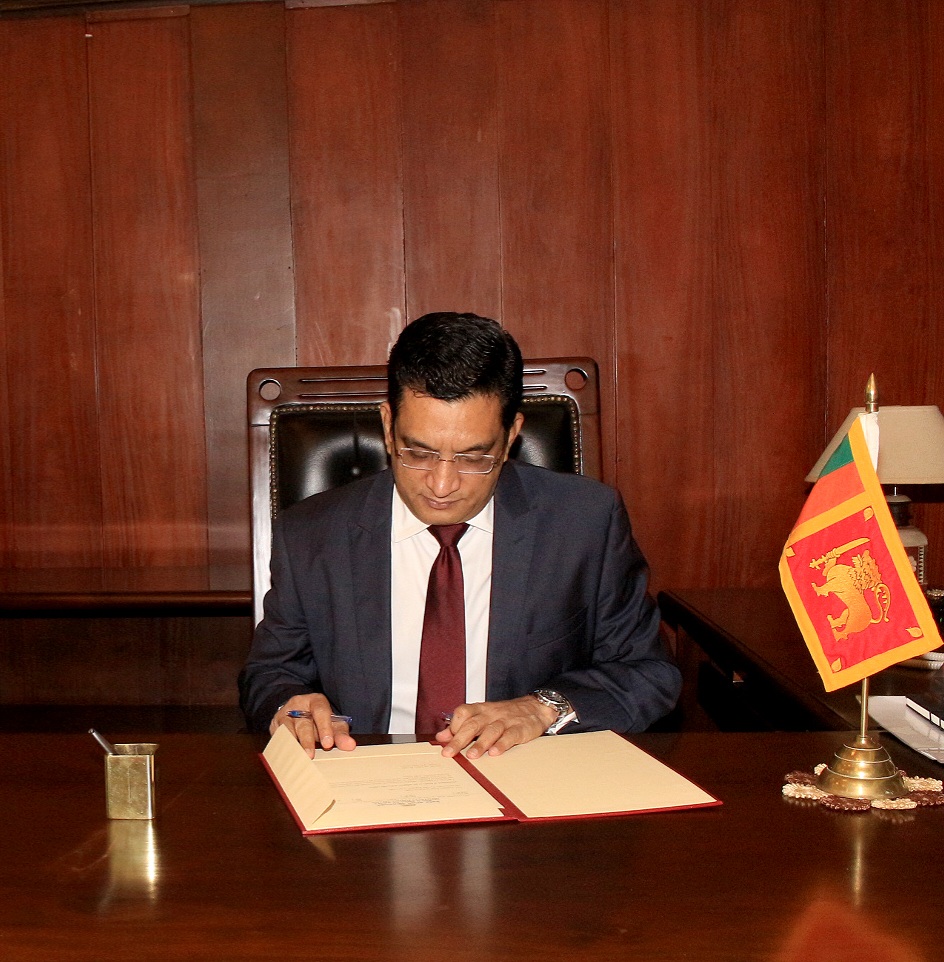
As the Minister of Justice he launched many new initiatives including the wide-ranging reforms into the Sri Lankan justice sector with the justice sector reform programme to amend over hundred laws, some of which have not been changed in over a century. Minister Ali Sabry also initiated the digitization drive of the justice sector, the expansion of courthouses across the country and the introduction of specialized courthouses to address the issue of delays.
As the Finance Minister he led the Sri Lankan delegation for the recent negotiations with the International Monetary Fund (IMF) and the World Bank in Washington D.C.
Prior to his entry into politics Minister Ali Sabry was a practicing lawyer with many of the cases he handled appearing in law reports and publications. He was appointed a President’s Counsel in 2012 and was awarded the Outstanding Young Person of The Year for Achievement in Law in 2009. He has also served as Sri Lanka’s Consul General in Jeddah, Saudi Arabia in 1997.
Ministry of Foreign Affairs
Colombo
25 July, 2022
Sagala Ratnayake appointed as RW’s Chief of Staff
Former Minister Sagala Ratnayake has been appointed as the President’s Chief of Staff. The appointment has been made by President Ranil Wickremesinghe.
Ratnayake has also been appointed as a senior advisor to the President on security.
Ratnayake who is a close associate of Wickremesinghe previously served as the Minister of Law and Order during the Good Governance regime.
MIAP
WHO issues new guidelines on fourth dose against Covid (VIDEO)
In the wake of another wave of Covid-19, a fourth dose should be administered against the pandemic, said Director General of Health Services Specialist Dr. Hemantha Herath, speaking to a briefing today (25).
Despite the Pfizer vaccine being met with expiration at the end of July this year, international organisations including the World Health Organisation have approved the recommendation made by the company that manufactures Pfizer that the vaccine can be administered for another three months, Dr. Herath revealed.
The DGHS, who urges the public to get vaccinated with the fourth dose, accordingly, has recommended that Pfizer is appropriate for the month of October through a circular.
MIAP
Overseas travel ban imposed to leaders of non-partisan protest
An overseas travel ban has been imposed to frontline leaders of the non-partisan protest against the current regime including Convener of the Inter-University Students’ Federation (IUSF) Wasantha Mudalige, Secretary of the Ceylon Teachers’ Association Joseph Stalin, Convener of the Socialist Youth Union Eranga Gunasekara, Rev. Fr. Jeewantha Peiris, Lahiru Weerasekara and Rangana Lakmal, based on a request made by the Colombo Fort Police.
The non-partisan protest leaders were charged of damaging public property during a protest held in front of the Colombo Police Headquarters on June 06 and the case filed against the protesters was taken up before Magistrate Thilina Gamage today (25).
MIAP
T56 stolen at riots near Parliament found
The Navy has reportedly found the T56 that was said to have been stolen by attacking an army officer during a protest at Polduwa junction near the Parliament entrance on July 13.
The missing firearm was found under the Samanala Bridge in Diyawanna Oya in Rajagiriya towards Parliament.
The Navy Diving Force retrieved the missing T56 and an empty ammunition bag on July 23 and handed them over to the Welikada Police.
The Welikada Police are conducting further investigations into the matter.
MIAP
40 vehicles gone missing from the Presidential Secretariat pool!
In a startling revelation, officials attached to presidential transport division informed the law enforcement authorities that at least 40 vehicles in the transport fleet of presidential secretariat have been disappeared at present.
These vehicles were in the pool of 749 vehicles before the invasion and forcibly occupation of protesters in the former parliamentary building complex after a daring take over of the premises by hundreds protest demonstrators.
There was no information what so ever on what has happened to 17 cars 12 motor cycles, 6 single cabs, 2 double cabs and 3 vehicles of other makes, senior official said adding that the transport division has a proper inventory of vehicles and other items under its custody before the forcibly taking over of the building.
This historic building had been occupied by protesters since July 9 and they fled the are following the military operation in the early hours of last Friday.
The officer in charge of vehicle fleet at the President’s House has already complained to the Fort Police Station that many parts of the vehicles in the President’s vehicle garage have been stolen.
He noted that about 20 vehicles were parked in that garage and he cannot say anything about how many vehicles were there at the president’s vehicle pool as relevant documents were missing.
Meanwhile, video footage has also been released on the fleet of vehicles found at the Presidential Secretariat in Colombo.the fleet of over 15 vehicles found at the Presidential Secretariat includes luxury cars and SUVs.
Mandate no more. New mandate required: Former Election Commission Chairman
The mandate given by the people in the last presidential election and the general election has now been cancelled and therefore, a general election should be held as soon as possible to pave the way for a new mandate, said former Chairman of the Election Commission Mahinda Deshapriya.
The ex Commission Chief added that should elections be held for the establishment of democracy, there are institutions to bear the costs for it and countries like Afghanistan and Bangladesh can be pointed out as examples for such scenarios.
The holding of an election amidst this economic crisis may not be much of a problem in the event that the government officials have already declared that they are ready to engage in election duties without receiving any allowance, he added.
MIAP
Filling station owners reveal not all stations receive fuel
Despite the Ceylon Petroleum Corporation’s (CEYPETCO) claim of fuel being available with enough stocks, not every filling station will receive petrol and diesel given that the distribution has been restricted, Kumara Rajapaksa, President of the Filling Station Owners’ Association, told media today (25).
In the backdrop, the filling station owners urged the consumers to reach only the filling stations where fuel is available and the required fuel can be collected as the information pertaining to fuel availability is updated daily on the internet.
Waiting in queues would be unnecessary in the event that fuel will be distributed only according to the vehicle number and the QR Code system, Rajapaksa added.
He noted that the vehicle number system and the QR Code system are successfully being implemented.
MIAP

